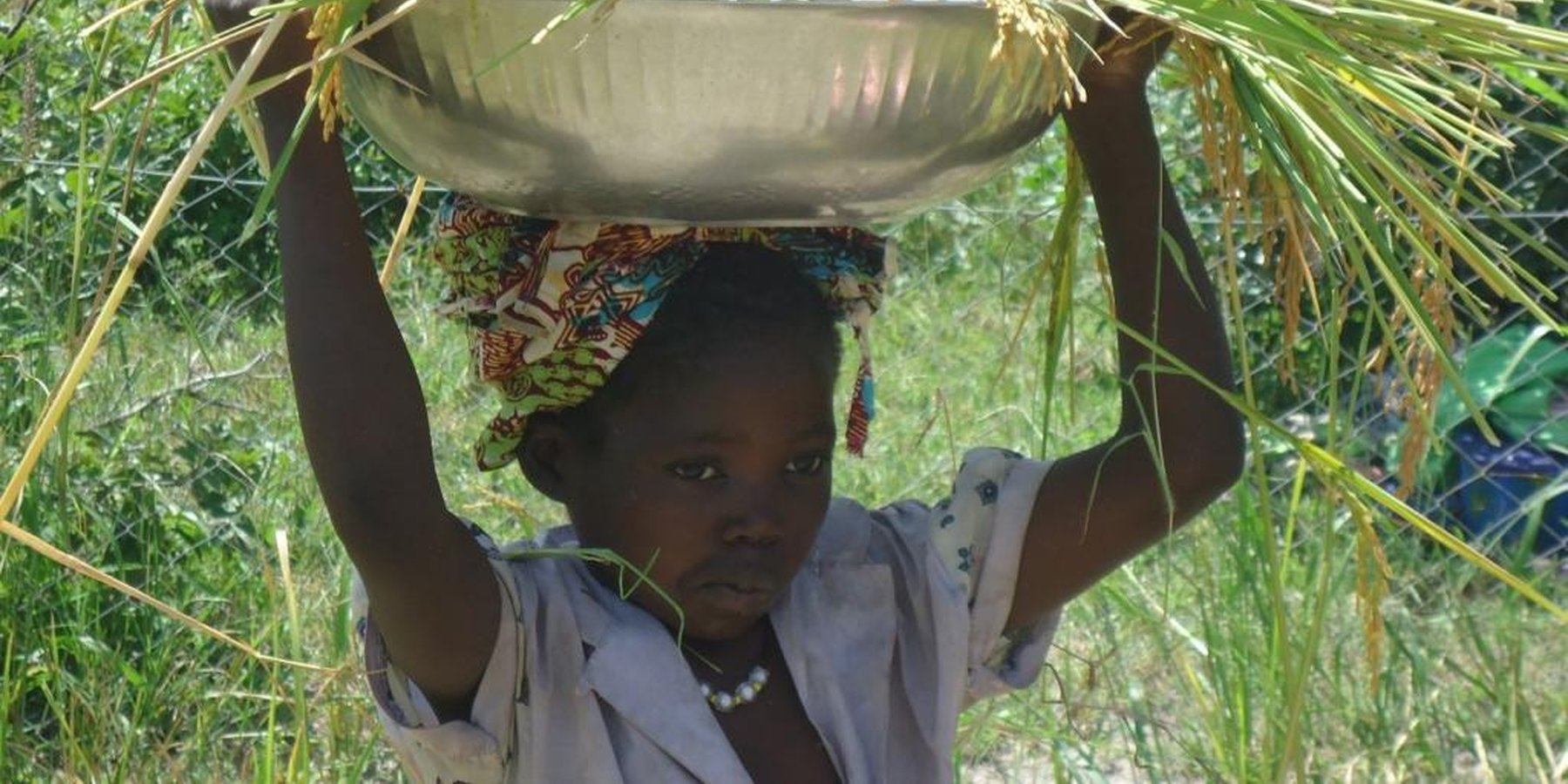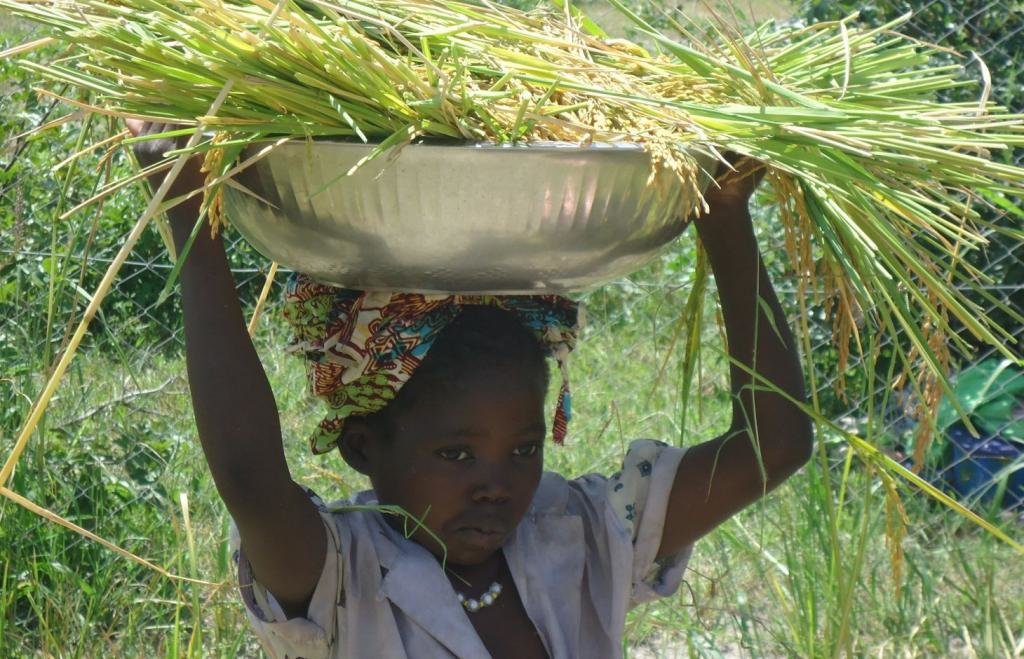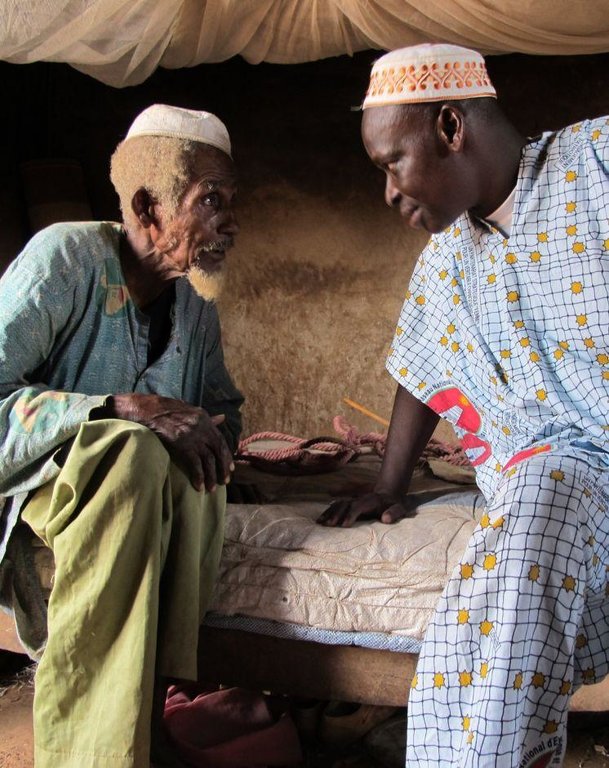Agricultural credit and start-up funding for small-scale irrigation cooperatives [มาลี]
- ผู้สร้างสรรค์:
- การอัพเดท:
- ผู้รวบรวม: Dieter Nill
- ผู้เรียบเรียง: –
- ผู้ตรวจสอบ: Laura Ebneter
Crédit agricole et fonds de démarrage pour les coopératives dans l’irrigation de proximité
approaches_2508 - มาลี
ดูส่วนย่อย
ขยายทั้งหมด ย่อทั้งหมด1. ข้อมูลทั่วไป
1.2 รายละเอียดที่ติดต่อได้ของผู้รวบรวมและองค์กรที่เกี่ยวข้องในการประเมินและการจัดเตรียมทำเอกสารของแนวทาง
ผู้เชี่ยวชาญ SLM:
Dembele Célestin
celestin.dembele@helvetas.org
HELVETAS - Swiss Intercooperation
มาลี
ผู้เชี่ยวชาญ SLM:
Doumbia Moussa
mtdoumbia@yahoo.fr
Association for the Development and Protection of the Environment (ADEPE Mali)
มาลี
Tamini Jacques
jacques.tamini@helvetas.org
HELVETAS - Swiss Intercooperation
มาลี
ชื่อของโครงการซึ่งอำนวยความสะดวกในการทำเอกสารหรือการประเมินแนวทาง (ถ้าเกี่ยวข้อง)
Deutsche Gesellschaft für Internationale Zusammenarbeit (GIZ) - เยอรมนีชื่อของโครงการซึ่งอำนวยความสะดวกในการทำเอกสารหรือการประเมินแนวทาง (ถ้าเกี่ยวข้อง)
HELVETAS (Swiss Intercooperation)1.3 เงื่อนไขที่เกี่ยวข้องกับการใช้ข้อมูลที่ได้บันทึกไว้ผ่านทาง WOCAT
วันที่เก็บรวบรวมข้อมูล (ภาคสนาม):
01/07/2012
ผู้รวบรวมและวิทยากรหลักยอมรับเงื่อนไขเกี่ยวกับการใช้ข้อมูลที่ถูกบันทึกผ่านทาง WOCAT:
ใช่
2. คำอธิบายของแนวทาง SLM
2.1 การอธิบายแบบสั้น ๆ ของแนวทาง
Providing lowland farmer cooperatives with self-managed, self-renewing financial resources for the purpose of facilitating members’ access to farming inputs.
2.2 การอธิบายอย่างละเอียดของแนวทาง
การอธิบายอย่างละเอียดของแนวทาง:
Once the infrastructure has been put in place, cooperatives are supported in drawing up their cropping plans (rice and vegetable growing). This support is provided in the context of value enhancement. The cropping plans include forecasting in relation to sites and the input needs of member farmers. The funds provided by the project are targeted towards supporting the empowerment of cooperatives and constitute non-repayable grants. Cooperatives use these financial resources to provide their members with loans to grow crops. When these crops are sold, the loans are repaid to the cooperatives along with a small percentage of interest to renew the loan facility. The loan awarding system, interest rates and repayment deadline are clearly defined by the cooperative. Women have access to gender-specific mechanisms, such as a facility to access credit without providing any personal contribution. The grant is awarded following a capacity-building process focusing on the management and governance of the cooperative. Following negotiations, the programme funds the cooperative’s cropping plan on the basis of a collaboration agreement. Support with managing the funds is delivered by a consultant. The grant is paid into the cooperative’s bank account. The cooperative organises the procurement of inputs, in collaboration with the service provider. Loans are provided in kind (seed, fertilisers, pesticides, etc.) rather than as cash. Those tasked with managing the cooperative are given training in how to use a range of management tools (drawing up cropping plans; keeping stock inventory, loan and repayment records; managing removal and delivery receipts; etc.). At the end of the growing season, the loans are repaid in kind (seed) and in cash (fertilisers and fungicides) in accordance with a predetermined timetable, thus replenishing the fund.
The structuring, organisational strengthening and management capacity building activities are delivered by the consultant from the outset of the scheme’s implementation phase. Groups of actors are encouraged to organise themselves as cooperatives (women and men rice growers, vegetable and other kinds of growers, etc.). These cooperatives, with the support of the consultancies, act as the representative for managing funds. They draw up their cropping plans (list of member producers and their farmland, and evaluation of the input requirements requested by producers) and define the system for awarding loans (the access conditions, repayment methods, timetables and interest levels are set by the cooperatives). An agreement setting out the ways in which the programme will provide support through a contracted service provider is signed. Funds are paid into the relevant bank account and the cooperative then procures the inputs. The cooperative managers, using the management tools at their disposal, distribute the inputs to producers. A public audit is organised to inform members about the status of loans. The recovery of loans with interest makes it possible to replenish the fund (with payments paid into the cooperative’s bank account). The public audit into the loan repayment situation is a medium for deploying coercive measures to recover unpaid loans.
The cooperatives catalogue needs, coordinate the preparation of the cropping plan, set the access conditions for loans, undertake procurement and ensure the recovery of loans from members. The communes participate in debriefings, facilitate the settlement of misunderstandings between producers and cooperatives, and monitor technical support provision. The intermunicipal body facilitates communication and negotiation between communes and the programme. Consultancies deliver management training and advisory support on technical aspects of farming, and facilitate the procurement of inputs suited to the farming condition of each site. Technical services participate in evaluation meetings and act as advisors to the service providers and programme team.
2.3 รูปภาพของแนวทาง
2.5 ประเทศ ภูมิภาค หรือสถานที่ตั้งที่ได้นำแนวทางไปใช้
ประเทศ:
มาลี
ภูมิภาค/รัฐ/จังหวัด: :
Mali
ข้อมูลเฉพาะเพิ่มเติมของสถานที่ตั้ง:
Bougouni, Kolondiéba, Yanfolila
2.6 วันที่เริ่มต้นและสิ้นสุดของแนวทาง
ระบุปีที่เริ่ม:
2008
2.7 ประเภทของแนวทาง
- ใช้โครงงานหรือแผนงานเป็นฐาน
2.8 เป้าหมายหรือวัตถุประสงค์หลักของแนวทาง
Providing lowland farmer cooperatives with self-managed, self-renewing financial resources for the purpose of facilitating members’ access to farming inputs.
The SLM Approach addressed the following problems: lack of cash to invest in SLM
2.9 เงื่อนไขที่เอื้ออำนวยหรือเป็นอุปสรรคต่อการนำเทคโนโลยีภายใต้แนวทางนี้ไปปฏิบัติใช้
การมีไว้ให้หรือการเข้าถึงแหล่งการเงินและบริการ
- เป็นอุปสรรค
lack of cash to invest in SLM
Treatment through the SLM Approach: Providing lowland farmer cooperatives with self-managed, self-renewing financial resources for the purpose of facilitating members’ access to farming inputs.
3. การมีส่วนร่วมและบทบาทของผู้มีส่วนได้ส่วนเสียที่เกี่ยวข้อง
3.1 ผู้มีส่วนได้ส่วนเสียที่เกี่ยวข้องในแนวทางนี้และบทบาท
- ผู้ใช้ที่ดินระดับท้องถิ่นหรือชุมชนระดับท้องถิ่น
- ผู้เชี่ยวชาญ SLM หรือที่ปรึกษาการเกษตร
- องค์กรพัฒนาเอกชน
- รัฐบาลระดับท้องถิ่น
- รัฐบาลแห่งชาติ (ผู้วางแผน ผู้ทำการตัดสินใจ)
3.2 การเกี่ยวข้องของผู้ใช้ที่ดินระดับท้องถิ่นหรือชุมชนระดับท้องถิ่นในช่วงต่างๆของแนวทาง
| ความเกี่ยวข้องของผู้ใช้ที่ดินระดับท้องถิ่นหรือชุมชนระดับท้องถิ่น | ระบุผู้ที่มีส่วนเกี่ยวข้องและอธิบายกิจกรรม | |
|---|---|---|
| การริเริ่มหรือการจูงใจ | ไม่ลงมือ | |
| การวางแผน | ปฏิสัมพันธ์ | |
| การดำเนินการ | ปฏิสัมพันธ์ | |
| การติดตามตรวจสอบหรือการประเมินผล | ปฏิสัมพันธ์ | |
| Research | ไม่ลงมือ |
3.4 การตัดสินใจเลือกใช้เทคโนโลยี SLM
ระบุผู้ที่ทำการตัดสินใจเลือกเทคโนโลยีมากกว่าหนึ่งวิธีไปปฏิบัติใช้:
- ผู้ใช้ที่ดินเป็นผู้ตัดสินใจหลัก โดยการสนับสนุนจากผู้เชี่ยวชาญ SLM
การอธิบาย:
Decisions on the method of implementing the SLM Technology were made by mainly by land users supported by SLM specialists
4. การสนับสนุนด้านเทคนิค การสร้างขีดความสามารถ และการจัดการด้านความรู้
4.1 การสร้างขีดความสามารถ / การอบรม
ได้มีการจัดอบรมให้แก่ผู้ใช้ที่ดินหรือผู้มีส่วนได้ส่วนเสียคนอื่น ๆ หรือไม่:
ใช่
ให้ระบุว่าใครเป็นผู้ได้รับการอบรม:
- ผู้ใช้ที่ดิน
- เจ้าหน้าที่ภาคสนาม / ที่ปรึกษา
รูปแบบการอบรม:
- จัดการประชุมสู่สาธารณชน
- จัดคอร์ส
หัวข้อที่พูด:
Consultancies deliver management training and advisory support on technical aspects of farming. Those tasked with managing the cooperative are given training in how to use a range of management tools (drawing up cropping plans; keeping stock inventory, loan and repayment records; managing removal and delivery receipts; etc.).
4.2 การบริการให้คำแนะนำ
ผู้ใช้ที่ดินมีการเข้าถึงการรับบริการให้คำปรึกษาหรือไม่:
ใช่
ระบุว่ามีบริการให้คำปรึกษาหรือไม่:
- ไปเยี่ยมชมสถานที่
การอธิบาย/แสดงความคิดเห็น:
Name of method used for advisory service: Providing lowland farmer cooperatives with self-managed, self-renewing financial resources ; A local farming advisory mechanism active in the first few years of the scheme ensures high levels of productivity, which, in turn, facilitates the repayment of loans. Holding public audits to report on accounts ensures that the system is transparent.
Advisory service is quite adequate to ensure the continuation of land conservation activities
4.3 การเสริมความแข็งแกร่งให้กับสถาบัน (การพัฒนาองค์กร)
สถาบันได้รับการจัดตั้งขึ้นมาหรือเสริมความแข็งแกร่งโดยแนวทางนี้หรือไม่:
- ใช่ ปานกลาง
ระบุระดับของสถาบันที่ได้รับการเสริมความแข็งแกร่งหรือจัดตั้งขึ้นมา:
- ท้องถิ่น
ระบุประเภทของการให้ความช่วยเหลือสนับสนุน:
- ด้านการเงิน
- การสร้างขีดความสามารถ / การอบรม
4.4 การติดตามตรวจสอบและประเมินผล
การติดตามตรวจสอบและประเมินผลเป็นส่วนหนึ่งของแนวทางหรือไม่:
ใช่
ความคิดเห็น:
socio-cultural aspects were ad hoc monitored by project staff through observations
economic / production aspects were ad hoc monitored by project staff, land users through measurements
management of Approach aspects were ad hoc monitored by project staff, land users through observations
There were no changes in the Approach as a result of monitoring and evaluation: None
There were no changes in the Technology as a result of monitoring and evaluation: None
4.5 การวิจัย
การวิจัยเป็นส่วนหนึ่งของแนวทางหรือไม่:
ใช่
ระบุหัวข้อเรื่อง:
- สังคมวิทยา
- เศรษฐศาสตร์หรือการตลาด
- นิเวศวิทยา
- เทคโนโลยี
5. การสนับสนุนด้านการเงินและวัสดุอุปกรณ์
5.1 ระบุงบประมาณประจำปีสำหรับแนวทาง SLM นี้
แสดงความคิดเห็น (แหล่งของการระดมทุน ผู้บริจาคคนสำคัญ):
Approach costs were met by the following donors: international non-government: 100.0%
5.2 การสนับสนุนด้านการเงิน / วัสดุอุปกรณ์ให้แก่ผู้ใช้ที่ดิน
ผู้ใช้ที่ดินได้รับการสนับสนุนด้านการเงิน / วัสดุอุปกรณ์ไปปฏิบัติใช้เทคโนโลยีหรือไม่:
ใช่
ถ้าใช่ ให้ระบุประเภทของการสนับสนุน เงื่อนไขและผู้จัดหามาให้:
The funds provided by the project are targeted towards supporting the empowerment of cooperatives and constitute non-repayable grants. Cooperatives use these financial resources to provide their members with loans to grow crops. When these crops are sold, the loans are repaid to the cooperatives along with a small percentage of interest to renew the loan facility. The loan awarding system, interest rates and repayment deadline are clearly defined by the cooperative. Women have access to gender-specific mechanisms, such as a facility to access credit without providing any personal contribution.
5.3 เงินสนับสนุนสำหรับปัจจัยนำเข้า (รวมถึงแรงงาน)
ถ้าแรงงานโดยผู้ใช้ที่ดินเป็นปัจจัยนำเข้าที่มีอยู่มากมาย ระบุด้วยว่าเนื่องจาก:
- ให้ค่าตอบแทนด้วยการสนับสนุนด้านวัสดุอุปกรณ์อื่น ๆ
ความคิดเห็น:
Loans are provided in kind (seed, fertilisers, pesticides, etc.) rather than as cash.
5.4 เครดิต
มีการจัดหาเครดิตมาให้ภายใต้แนวทาง SLM หรือไม่:
ใช่
ถ้าใช่ ระบุเงื่อนไข (อัตราดอกเบี้ย การชำระคืน):
repayment conditions: The funds provided by the project are used to buy inputs on the basis of the cropping plan. The start-up fund granted by the programme pays for the initial stock. Once this stock has been procured, the inputs are distributed to members according to their stated requirements. The repayment schedule and the amount of interest that must be paid are communicated. Growers’ production activities are supported and monitored by the consultant and the management committee. Following the harvesting and sale of crops, in accordance with the deadline set, the loans are recovered along with their interest payments and the fund is replenished for the following growing season. During the different implementation stages, the cooperative holds public audits in the presence of the commune authorities to report on how the cooperative is being managed; the aim being to build trust between the cooperative and its members.
6. การวิเคราะห์ผลกระทบและการสรุป
6.1 ผลกระทบของแนวทาง
ช่วยให้ผู้ใช้ที่ดินนำเอาเทคโนโลยี SLMไปใช้และบำรุงรักษาสภาพไว้ได้หรือไม่:
- ไม่ใช่
- ใช่ เล็กน้อย
- ใช่ ปานกลาง
- ใช่ อย่างมาก
A local farming advisory mechanism active in the first few years of the scheme ensures high levels of productivity
ทำให้กลุ่มด้อยโอกาสมีอำนาจทางสังคมและเศรษฐกิจหรือไม่:
- ไม่ใช่
- ใช่ เล็กน้อย
- ใช่ ปานกลาง
- ใช่ อย่างมาก
Did other land users / projects adopt the Approach?
- ไม่ใช่
- ใช่ เล็กน้อย
- ใช่ ปานกลาง
- ใช่ อย่างมาก
The system has been applied in 19 sites across 15 communes in the circles of Bougouni, Kolondiéba and Yanfolila. In total, 2,150 producers – 81% of the farmers identified in the production areas – have benefited from the loan scheme. The approach has been in use since 2008.
Did the Approach lead to improved livelihoods / human well-being?
- ไม่ใช่
- ใช่ เล็กน้อย
- ใช่ ปานกลาง
- ใช่ อย่างมาก
Groups of actors are encouraged to organise themselves as cooperatives (women and men rice growers, vegetable and other kinds of growers, etc.). In total, 2,150 producers – 81% of the farmers identified in the production areas – have benefited from the loan scheme.
Did the Approach help to alleviate poverty?
- ไม่ใช่
- ใช่ เล็กน้อย
- ใช่ ปานกลาง
- ใช่ อย่างมาก
70% of the beneficiaries have improved their production levels. This management experience enables farmers to operate as entrepreneurs and to accurately assess their profitability
6.2 แรงจูงใจหลักของผู้ใช้ที่ดินเพื่อที่จะนำ SLM ไปปฏิบัติใช้
- การผลิตที่เพิ่มขึ้น
- การจ่ายเงินหรือการช่วยเหลือ
6.3 ความยั่งยืนของกิจกรรมของแนวทาง
ผู้ใช้ที่ดินสามารถทำให้สิ่งต่างๆ ที่ได้ปฏิบัติใช้โดยแนวทางนี้ยั่งยืนได้หรือไม่ (โดยไม่มีการสนับสนุนจากภายนอก):
- ใช่
6.4 จุดแข็งและข้อได้เปรียบของแนวทาง
| จุดแข็ง / ข้อได้เปรียบของแนวทางในทัศนคติของผู้รวบรวมหรือวิทยากรหลัก |
|---|
| Cooperatives are empowered to manage the funds. (How to sustain/ enhance this strength: It must be clearly communicated that the funds belong to the cooperative and are only granted once. The granting of in-kind (inputs) rather than cash loans curbs any attempts to stray from the objectives. ) |
| Since the programme began in 2008, the cooperatives have managed to achieve recovery rates of between 80% and 100%, and, with the system in place, 70% of the beneficiaries have improved their production levels. This management experience enables farmers to operate as entrepreneurs and to accurately assess their profitability. (How to sustain/ enhance this strength: Institutional and organisational strengthening plays a key role in achieving a successful outcome. ) |
| Following the granting of an initial ‘seed fund’, the financing mechanism grows and becomes sustainable on its own. |
| Evaluation meetings bring together actors from all the sites (commune authorities, cooperatives), consultancies and the programme team, serving to motivate actors and offering the opportunity to share experiences. |
| A local farming advisory mechanism active in the first few years of the scheme ensures high levels of productivity, which, in turn, facilitates the repayment of loans. Holding public audits to report on accounts ensures that the system is transparent. |
7. การอ้างอิงและการเชื่อมต่อ
7.1 วิธีการหรือแหล่งข้อมูล
- ไปเยี่ยมชมภาคสนาม การสำรวจพื้นที่ภาคสนาม
- การสัมภาษณ์กับผู้ใช้ที่ดิน
7.2 การอ้างอิงถึงสิ่งตีพิมพ์
ชื่อเรื่อง ผู้เขียน ปี ISBN:
Manual of Good Practices in Small Scale Irrigation in the Sahel. Experiences from Mali. Published by GIZ in 2014.
ช่องทางในการสืบค้น และราคา:
http://star-www.giz.de/starweb/giz/pub/servlet.starweb
ชื่อเรื่อง ผู้เขียน ปี ISBN:
2011 report: Accompagnement à la valorisation des ouvrages hydro-agricoles sur les sites de Blakala, Ména, Bafaga, Mamissa, Bogodougou, Nèrèkoro, Koloni et Mogoyafara [Support to enhance the value of hydro-agricultural schemes in Blakala, Ména, Bafaga, Mamissa, Bogodougou, Nèrèkoro, Koloni and Mogoyafara] (GSAD – Sahelian Development Support Group)
ชื่อเรื่อง ผู้เขียน ปี ISBN:
2011 report: Accompagnement à la valorisation des ouvrages hydro-agricoles sur les sites de Niakobougou, Blendougou, N’Gala, Banko, Faradiélé, Sibirila, Solona, Farababougou [Support to enhance the value of hydro-agricultural schemes in Niakobougou, Blendougou, N’Gala, Banko, Faradiélé, Sibirila, Solona and Farababougou] (BEACIL – Consultancy and Advisory Support for Local Initiatives)
ชื่อเรื่อง ผู้เขียน ปี ISBN:
2013 report: Collecte de données sur la valorisation des ouvrages hydro-agricoles réalisés dans le Pôle de Bougouni sur le financement
ลิงก์และโมดูล
ขยายทั้งหมด ย่อทั้งหมดลิงก์
ไม่มีลิงก์
โมดูล
ไม่มีโมดูล




